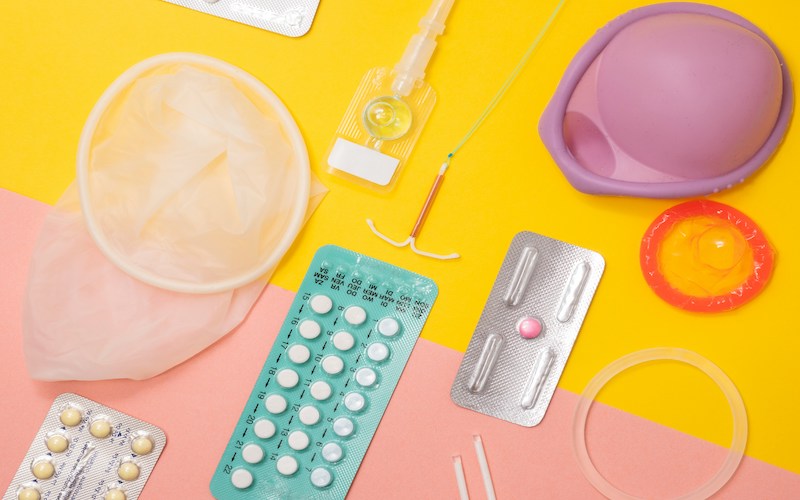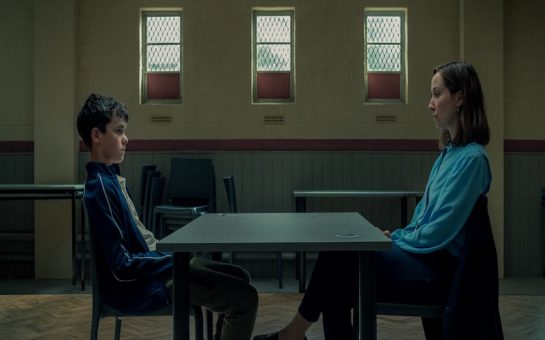Misinformation on social media platforms such as TikTok and Instagram has been blamed for soaring abortion rates among teenagers, experts have warned.
Abortions among girls aged 15-17 rose by a record 12% in just one year, following an alarming drop in the number of girls using contraception, new research shows.
Experts blame the shock rise, from 7,000 abortions in 2021, to nearly 7,800 in 2022, on a social media trend in which influencers post misleading videos claiming contraception will cause serious health complications such as blood clots, alopecia and breast cancer.
Since 2007, the number of young girls age 17 and under seeking emergency terminations has steadily decreased due, at least in part, to better access to contraception, with emergency hormonal contraception being rolled out across many pharmacies free of charge.
The latest figures, released this year by the Department of Health & Social Care, however bucked this trend.
While the reasons behind record high abortion figures are not entirely clear, and a number of different factors are likely to have contributed, healthcare professionals have raised concerns about the spread of misinformation on social media.
Dr Janet Barter, president of The Faculty of Sexual and Reproductive Health, The UK’s leading healthcare advisory, said: “It’s a doubled-edged sword. On the one hand, it is good that young girls are thinking about what the right contraception is for them before they make a decision.
“But, if you look at social media, you see extreme things that are clearly untrue, like the pill will make you infertile. We know that’s not the case.”
Videos posted on social media platforms, such as TikTok and Instagram, feature women speaking out about the pill and the implant – a small plastic rod that is inserted into the arm to prevent pregnancy by releasing the progesterone hormone.
The videos claim they can cause excessive weight gain, anxiety, depression, irregular bleeding, hormonal acne and a decreased sex-drive, with more than 27,000 posts on TikTok using the hashtag #contraception.
In some cases, women posting on these platforms claim the implant causes cancer and in other videos, it has been claimed the pill can make young girls and women infertile.
One TikTok video, that had almost 18,000 likes and over 136,000 views, claimed: “Girlies, while we’re talking about the toxic tampons I feel like I should add that the implant LITERALLY gave me thyroid cancer so PLEASE be careful.”
TikTok have since removed the video.
Sexual Health and Reproductive Services (SRHS) have seen an alarming drop in the number of girls under 18 who regularly use an effective form of contraception, which is classified as either Long Acting Reversible Contraceptives (LARCs) such as the coil, or User Dependent methods, like the pill or condoms.
Experts say that this does not mean less young girls are having sex.
Dr Barter said: “We know that girls under 16 are having sex and always have been. We’ve really got to do some more work to talk about hormones in a more sensible way.
She added: “There is a real sense of fear around long acting contraceptives among both the public and healthcare professionals and a misguided sense that the pill is better for everyone.”
Whilst NICE guidelines suggest that LARCs are one of the most effective methods of contraception, massively reducing the risk of unplanned pregnancy, less girls are opting for this method.
The Associate Clinical Director at MSI Reproductive Choices, Sarah Salkeld, said: “There is rarely one isolated reason why someone needs or chooses an abortion.
“However, accurate, non-stigmatising information is crucial, especially for younger people, which is why inclusive, evidence-based sex and relationships education is more important than ever.”
Whilst 2023/24 official abortion figures have not yet been released, a coalition of healthcare bodies are concerned that abortion numbers are still rising.
MSI Reproductive Choices, one of the world’s largest providers of contraception and safe abortion services, saw 27% more women for abortion care across the UK in 2023 alone.
The Faculty of Sexual and Reproductive Health is calling on healthcare professionals to do more to help young women and girls avoid pregnancy.
It made the plea after figures showed an alarming increase in the number of girls under the legal age of consent having sex without an effective method of contraception in use.
In 2014/15, 83,000 girls under 16 contacted SRH services for non-emergency contraceptive care but last year, this number fell to just 25,5000.
According to a report carried out by Healthwatch Greenwich last year, young people are not only concerned about the supposed side effects of LARC methods, but about having less autonomy over their bodies.
It was also found that knowledge about how, or where, to access different forms of contraception also had a major influence on contraceptive choices.
Despite the recognised advantages of LARCs, with more than three quarters of participants stating that the most important thing to them when choosing contraception is how effective it is at reducing unplanned pregnancies, many of the participants expressed concern over the perceived amount of hormones in LARC methods.
Dr Barter said: “If preventing a pregnancy is really important then young girls, who are the most fertile, should have access to the most effective methods of contraception.
“For a woman or a girl to have sex without the very real fear of getting pregnant is a very basic human right and it is getting more and more difficult for people to do this.”
TikTok’s guidelines state that users are permitted to share their personal stories and experiences about medical treatment as long as it does not contain harmful misinformation.
The platform has been contacted for further comment.
Featured Photo Credit: Reproductive Health Supplies Coalition on Unsplash





